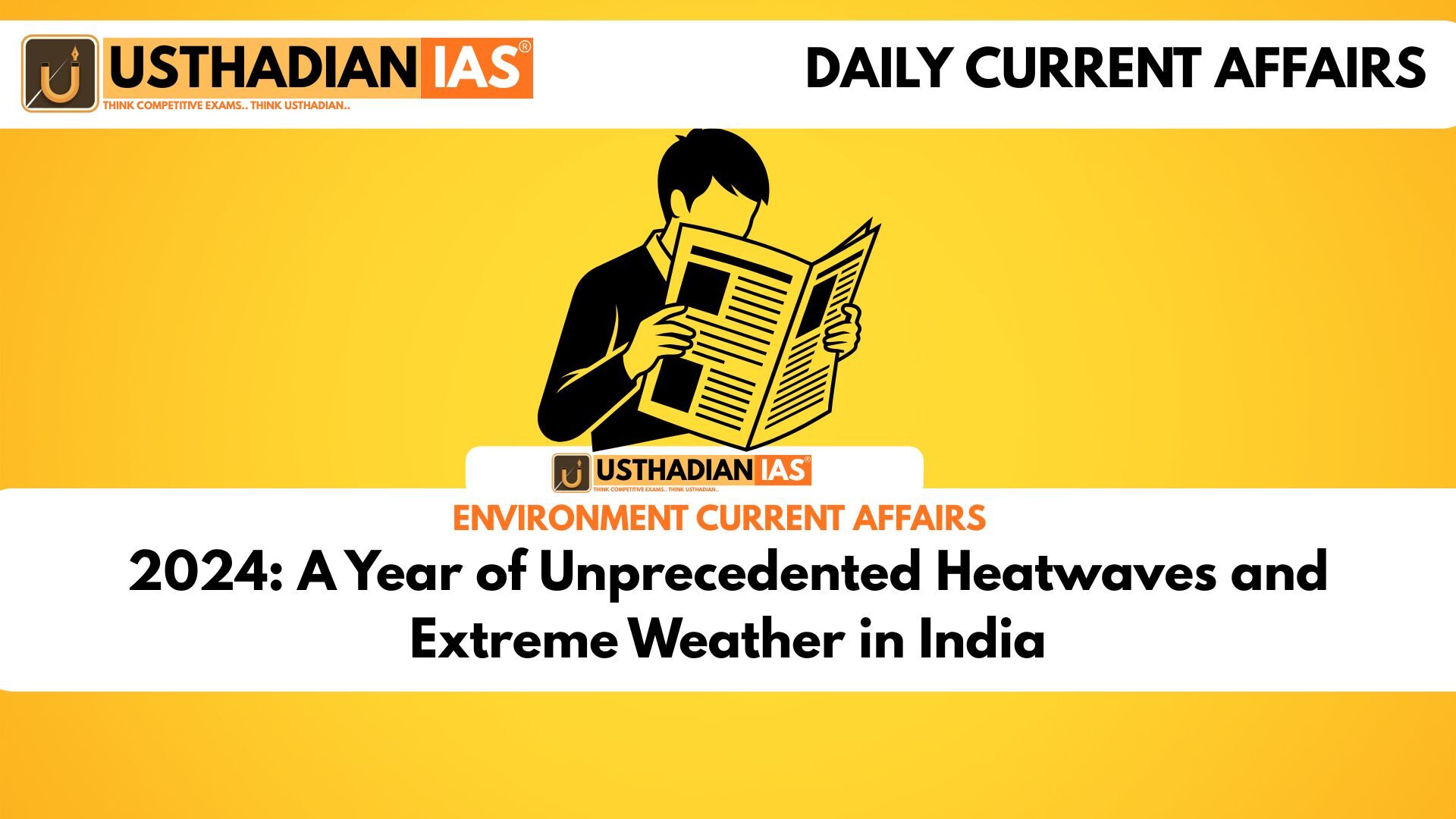2024 Becomes India’s Hottest Year on Record
2024: A Year of Unprecedented Heatwaves and Extreme Weather in India: India witnessed a climate milestone in 2024 as it officially became the hottest year since 1901, according to the India Meteorological Department (IMD). This wasn’t just a national issue—2024 also set global heat records. With an average temperature +0.65°C above the 1991–2020 long-term average, it surpassed the previous national record set in 2016. Almost every month except March was hotter than usual, showing a strong shift in seasonal climate behavior.
Unusual Heat Throughout the Seasons
Every part of the year in 2024 came with extreme temperatures. The winter months of January and February recorded a +0.37°C rise. Then came the pre-monsoon heat of March to May, which reached +0.56°C above normal. Things worsened during the monsoon season, where the average temperature touched +0.71°C above typical levels. But the worst was yet to come—post-monsoon months (October to December) saw a +0.83°C spike. October was the most alarming, with a +1.23°C anomaly, making it the hottest October in India’s climate history.
Regional Heatwaves and Their Impact
Different parts of the country faced intense heatwaves. April hit the eastern coast, while May brought blazing heat to northwestern regions. By June, central and northern India faced heat anomalies that exceeded 4°C. This extreme weather stressed electricity demand and water resources, as several places reported temperatures crossing 45°C. From schools shifting to remote schedules to hospitals seeing a spike in heatstroke cases, the human impact was real and wide-reaching.
October’s Heat Sets a New Monthly Record
Among all months, October stood out with the highest monthly anomaly of +1.23°C. November followed closely, ranking as the third warmest since 1901 with an +0.84°C rise. Even the rainy months like July and September were not spared, recording +0.70°C and +0.76°C, respectively. These shifts had direct effects on agriculture, affecting crops that rely on seasonal cooling.
Nights Were No Better: Minimum Temperature Spikes
It wasn’t just the days that were unbearable. Nighttime temperatures also rose unusually high. July to October saw record-breaking minimum temperatures, with October hitting a shocking +1.78°C above average. February, typically cool, also recorded a +0.79°C anomaly. For people with no access to air-conditioning, even the nights brought no relief, adding to the public health burden.
Cyclonic Storms Add to the Climate Woes
India’s climate in 2024 wasn’t just about heat—it was also about severe cyclonic storms. The northern Indian Ocean saw four named cyclones, with Remal and Dana being the most destructive. These brought heavy rainfall, flooding, and landslides, especially in eastern and coastal states. The storms damaged homes, crops, and transport infrastructure, worsening the challenges already caused by heatwaves.
India’s Dual Struggle with Heat and Disasters
2024: A Year of Unprecedented Heatwaves and Extreme Weather in IndiaThe mix of extreme heat, droughts, cyclones, and floods made 2024 one of the toughest years for Indian climate resilience. While some regions suffered crop losses due to heat stress, others battled flash floods and displacement. India’s fragile ecosystems, urban infrastructure, and public health systems all felt the pressure. The events of this year highlight the urgency to invest in climate adaptation and disaster management systems.
Static GK Snapshot for Competitive Exams
2024: A Year of Unprecedented Heatwaves and Extreme Weather in India:
| Topic | Fact |
| Record Year for India | 2024 – Hottest year since record-keeping began in 1901 |
| National Average Temperature | +0.65°C above 1991–2020 long-term average |
| Seasonal Anomalies | Winter (+0.37°C), Pre-monsoon (+0.56°C), Monsoon (+0.71°C), Post (+0.83°C) |
| Highest Monthly Anomaly | October (+1.23°C) |
| Cyclonic Activity | 4 cyclones in 2024 – including Remal and Dana |
| Nighttime Heat Records | Highest minimum temperature anomalies in July, August, Sept, October |
| Climate Impact | Crop damage, floods, health crises, water stress, infrastructure loss |
India’s experience in 2024 is not just a warning—it’s a blueprint for urgency. Climate change is not a distant threat anymore; it is shaping lives today. For exam aspirants, this is not only a current affairs topic but a vital environmental turning point in India’s recent history.








